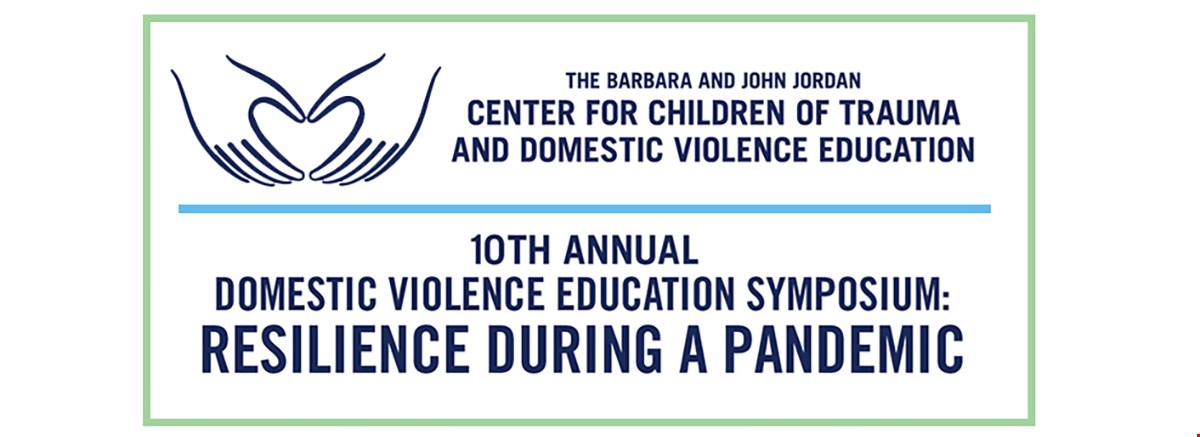The Barbara and John Jordan Center for Children of Trauma and Domestic Violence Education hosted Cabrini’s 10th annual Domestic Violence Symposium on Oct. 14, inviting pediatrician Kenneth Ginsburg, MD, for a virtual discussion, “Resilience During a Pandemic.” Dr. Ginsburg specializes in adolescent medicine at the Children’s Hospital of Philadelphia (CHOP) and is a Professor of Pediatrics at the Perelman School of Medicine at the University of Pennsylvania. He is also Co-Director of CHOP’s Center for Parent and Teen Communication.
“We were grateful for a compelling conversation with Dr. Ginsburg, who has been a leader in therapy for children experiencing trauma,” said Colleen Lelli, EdD, Director of the Jordan Center, Associate Professor of Education, and moderator of the symposium. “2020 has been a cruel year for children in particular, and this symposium taught our Education students a great deal about helping youths to harness their power against adversity and trauma.”
Ginsburg, who works with Philadelphia’s homeless and marginalized youth as Director of Health Services at Covenant House Pennsylvania, began the conversation by emphasizing the importance of adolescence as a time of formative growth.
“Adolescence is a period of astoundingly rapid brain growth,” Ginsburg said. “To the extent that we can build young people who are prepared to build us a better world and launch into adulthood fully capable of doing good things, we literally change the future.”
Ginsburg said helping young people shape their futures often starts with reorienting the labels they have been given.
“The most meaningful conversations I have with young people at Covenant House of Pennsylvania involve shifting their self-perception from the labels that have been slapped on them,” Ginsburg said, describing how telling children they have anxiety or an anger problem is counterproductive, even if such labels have medical benefits.
These children, who may have a heightened sensitivity to potential danger and be more likely to lash out in response, have what Ginsburg calls a “protector’s brain,”, in that they want to protect themselves and others.
Lelli, who serves on the board of the Montgomery County domestic violence agency Laurel House, said that professionals working with children who have experienced trauma often encounter uncomfortable situations where emotions run high. And, the stakes may be higher now due to the COVID-19 pandemic.
The key for professionals managing such situations, according to Ginsburg, is to “know what is about you and what is not about you.”
“Our job is to hold the emotions, not react to them,” Ginsburg explained. “One of the best ways to react to uncertainty is with moral certitude. That doesn’t mean dividing between us and them. That means speaking loudly as a ‘we’ and serving individuals with absolute respect and loving kindness.”
Ginsburg said relationships in which adults hold children accountable while setting a compassionate, grounded example are imperative. He likened parenting to a duck gliding on water. While young children can take comfort in simply seeing the duck gliding calmly, teens benefit from seeing how furiously the duck’s legs are paddling beneath the water to stay afloat, he said.
“We want to show them the intentionality—the extent to which we work intensely to stay afloat,” Ginsburg said.
Lelli shifted the discussion to teenagers who recently started college during a pandemic. “What tools can we give these students and how do we tell them to self-care?” she asked.
Ginsburg offered a series of stress management tactics he helped author for the Center for Parent and Teen Communication and also left young adults with a hopeful message for their future.
“I believe this could be the best generation ever, precisely because they’ve been forced to divide,” Ginsburg said. “I think they’re going to have an intuitive understanding of how to stick together. As individuals, we are vulnerable and fragile. Together, we are stronger than our individual strength.”
